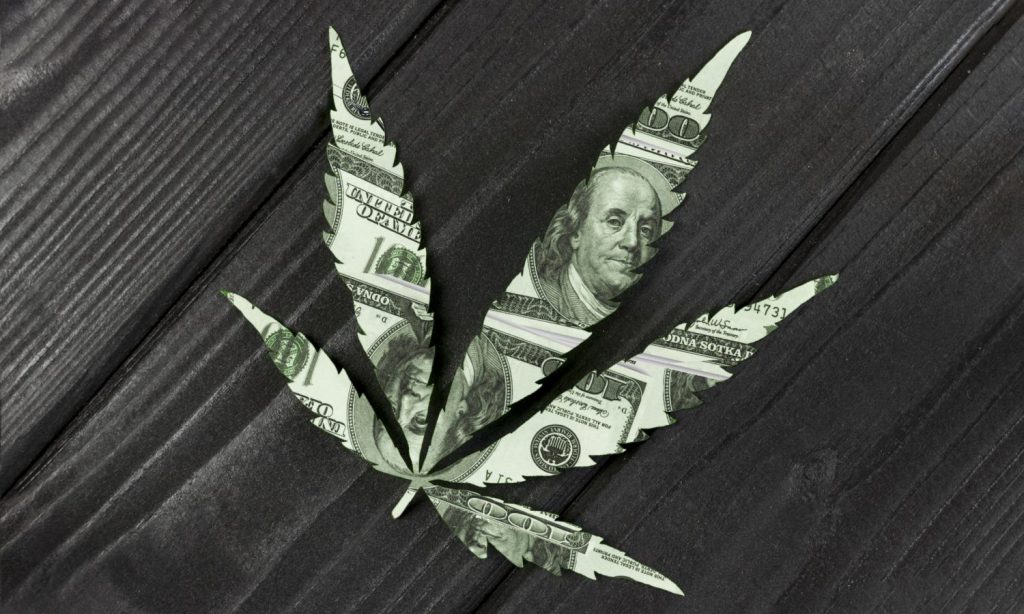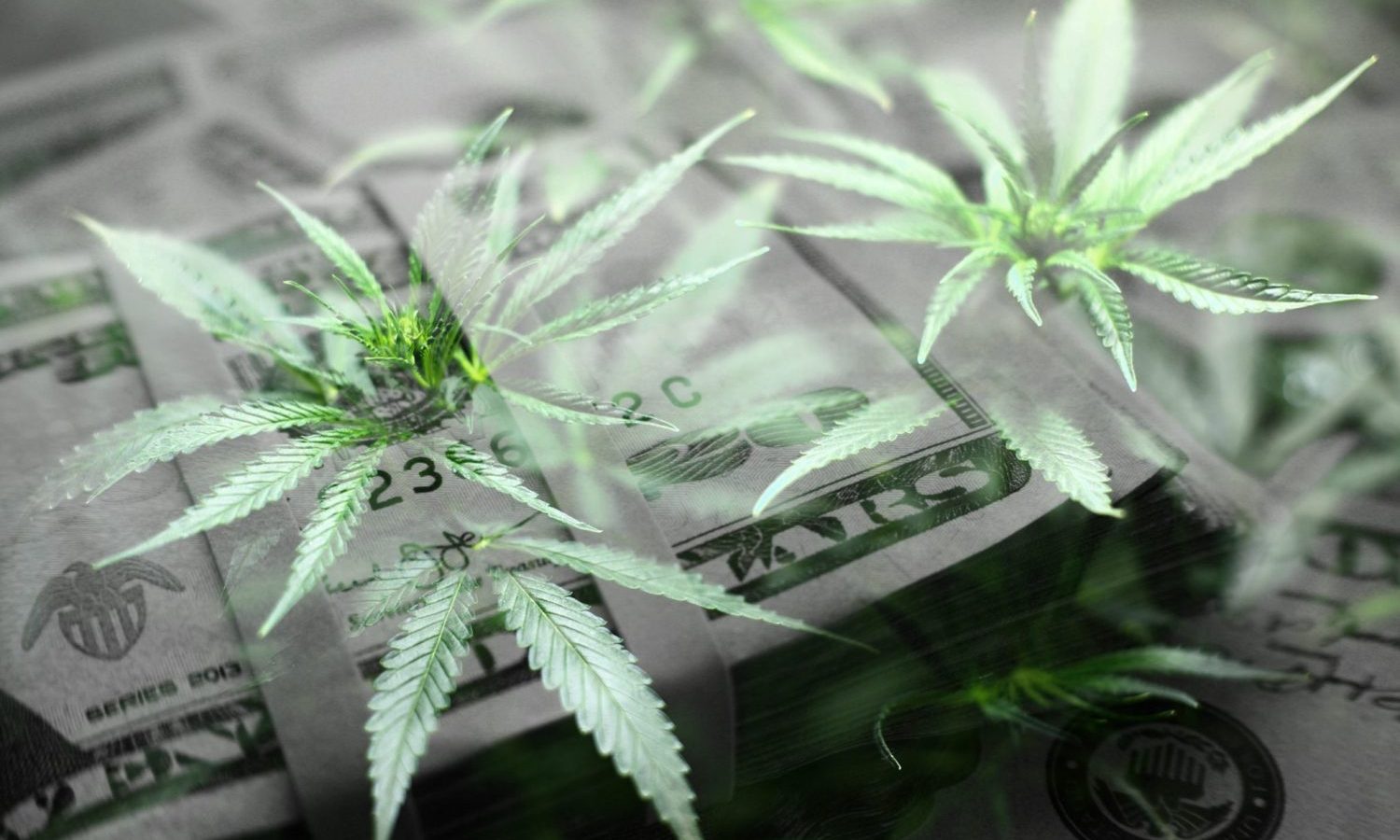Although the IRS has insisted that it isn’t a sign of imminent legalization, cannabis and crypto enthusiasts cannot help but remain optimistic.
Whenever the Internal Revenue Service (IRS) hosts an event in any business sector, it is usually a sign that the industry holds excellent potential for high revenues.
The cryptocurrency industry is currently worth $2.48 trillion, which is a leap from the $1 trillion value at the start of the year. The marijuana industry is $118.9 billion, which is a groundbreaking increase from $20.6 billion in 2019.
Despite the federal government’s reluctance to legalize and adopt both sectors, the revenue they generate which boosts the country’s economy cannot be ignored. Therefore when the IRS hosted the tax event for both sectors, crypto and cannabis enthusiasts wondered if it was a move towards legalization or federal support.

The tax event
Last Wednesday, the IRS held a forum organized to discuss tax policies for cannabis and cryptocurrency businesses. The meeting was led by a representative of the National Association of Tax Professionals (NATP) and highlighted some issues relating to both companies.
Some of the issues discussed included permitting tax deductions as marijuana remains illegal at the federal level. Also, the issue of how different states tax cannabis and paying taxes on profit made from cryptocurrencies. During a discussion session at the event, there were discussions on the increasing support for marijuana legalization and the possibility for federal reform.
The publicity material for the forum stated that attendees would discover ways to prepare a tax return for “illegal” activities and understand when digital currencies should be declared as taxable income.
Tax professionals who sought to understand the crypto and marijuana markets were also part of the attendees. The event offered a higher-level overview of some of the unique financial challenges to both markets.
What do crypto and marijuana have in common?
Cryptocurrencies and marijuana have one challenge in common: federal prohibition. Until the federal government decides to legalize them, such forums will always be organized to explain how illegality works with taxes.
A more significant number of states in America still haven’t legalized marijuana in some forms. The illicit status under the Controlled Substances Act implies that cannabis businesses can deduct the standard costs like other regulated markets. The presenter at the event confirmed this to be true because it is in Provision 280E of the tax laws.
RELATED: Why Crypto In Cannabis Might Take On Mainstream
The presenter also emphasized that even if a company is labeled “illegal,” marijuana businesses are still required to pay federal taxes. He maintained that there are opportunities for few deductions when revealing the cost of goods for producers and retailers.

A slide from the IRS presentation showed a poll by Americans who are against marijuana prohibition. The presentation also offered an overview of the economic possibility of the cannabis market, which is of much interest to the IRS.
A summary of the statistics shared at the event is as follows:
- Marijuana nationwide sales $17.9 billion
- Sales are up by 67%from 2019
- The legal cannabis market will be $23.8 billion in 2021
- Total market value by 2026is at $90.4 billion
- The projected reach by 2026 is $90.4 billion
- 90% of Americans support access to medical cannabis
- 68% of Americans voted YES so cannabis can be legalized.
The National Association of Tax Professionals was led by their accountant, who also led a panel discussion focused on the Senate’s efforts to legalize marijuana. Notably, the focus was on the contributions of Senate Majority leader Chuck Schumer who had passed a draft version to the Senate last month.

The accountant said that he believed that the efforts at the senate level are significant as conversations on legalizing cannabis are becoming “mainstream.” He further asserts that if America gets its legislation to regulate correctly, the next question and challenge will be to legalize it.
The IRS Tax preferences for states with legal cannabis markets
At the start of 2021, IRS Commissioner, Charles Retting, informed Congress that the agency prefers state-legal cannabis businesses to pay taxes electronically. This request resulted from the inefficiency of the current cash system, which is in place because cannabis is still federally illegal.
The IRS, like many other organizations and individuals who have called on the federal government to reconsider its stance, believe that the cash system poses a risk to workers.
Steven Mnuchin, the former Treasury Secretary, said in 2019 that he would prefer Congress’s approval of the legislation that resolves the marijuana banking challenge. He maintained that the IRS building cash rooms to pay taxes from cannabis businesses demonstrates the problem with the cash system.
RELATED: These States Have The Highest Cannabis Sales Taxes In America
Last year, the IRS shared updated guidance on tax policy for cannabis businesses, including instructions on how marijuana businesses without access to bank accounts can pay ample monies as taxes.
The update is a response to a report released last year by the treasury department. The inspector general for the department’s taxes had initially criticized the IRS for not adequately giving marijuana businesses who are taxpayers good advice on complying with federal tax laws. So the treasury department instructed the agency to create and publicize the guidance document focused on the cannabis industry and helpful to every entrepreneur in that sector.
The commissioner for Small Business/Self Employed Division at the IRS attended a marijuana-focused forum in December. At the event, he mentioned that the legalization discourse is gaining momentum. He also asserted that the movement would succeed in bringing state prohibition to an end.
The IRS holding an event about two fundamental but sadly still illegal markets in America is a positive sign. Although they have insisted that it isn’t a sign of imminent legalization, cannabis and crypto enthusiasts cannot help but remain optimistic.
One thing is sure about the future of the cannabis market in particular. Soon enough, it will become so big and bring in billions of dollars in revenue that the federal government cannot ignore. Until then, states, where marijuana is already legal are reaping the benefits. This situation should be a lesson to the federal government that with or without them, the marijuana and crypto markets will thrive.


